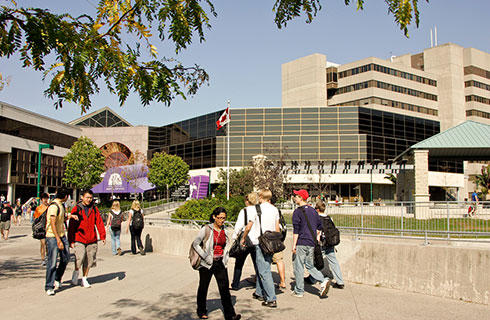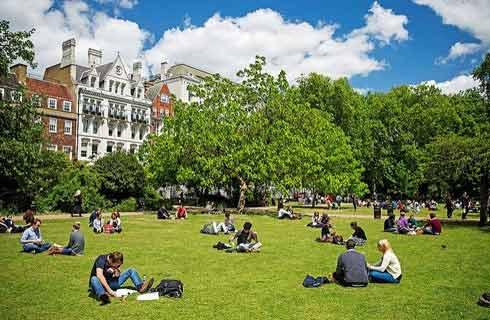- IDP China>
- 课程库>
- 自然科学>
- 自然资源与保护>
- 自然资源经济学>
- Bachelor of Science in Resource and Environmental Economics (Honours)
资源与环境经济学理学学士(荣誉学位)
Bachelor of Science in Resource and Environmental Economics (Honours)

学历文凭
Bachelor Degree with Honours

专业院系
Faculty of Science and Environmental Studies

开学时间

课程时长

课程学费

国际学生入学条件
To be considered for admission as an International Student, you must currently reside outside of Canada and you are not a Canadian citizen. To meet the General Admission Requirements to Lakehead, you will need the following: Successful graduation from an academic secondary school program or equivalent (For most countries, the same academic preparation as is required for university entrance in that country is required for consideration; Program-Specific Prerequisite courses completed at the senior level (e.g. Grade 12); Equivalent of a minimum 70% overall final average (Canadian).
English Language Proficiency Requirements:
Canadian Academic English Language Assessment (CAEL) - Minimum Score: 60
Cambridge Academic English (C1 Advanced or C2 Proficiency) - Minimum Score: 176 (no individual score less than 169)
Duolingo English Test - Minimum Score: 110
International English Language Testing System (
IDP—雅思考试联合主办方

雅思考试总分
6.5
- 雅思总分:6.5
- 托福网考总分:80
- 托福笔试总分:550
- 其他语言考试:Pearson Test of English Academic (PTE Academic) - 58 (no component score less than 50)
CRICOS代码:
申请截止日期: 请与IDP联系 以获取详细信息。
课程简介
Economics is a social science dedicated to the study of decision-making under scarcity, and the factors that influence wealth. Economics involves financial topics and broader historical, sociological and cultural topics ranging from the individual (microeconomics) to governments, industries and central banking (macroeconomics). This extensive and multidisciplinary study of the economy is what sets it apart from other seemingly similar topics such as Business or Finance. You will also gain a marketable edge through field and speciality courses focused on labour, natural resources and industrial organisation. The natural ebb and flow of the economy means that economics is a changing and dynamic field. Our continually updated course content reflects new theories, information and current events impacting the Economics field. Mathematics is a large component of many of our Economics courses; therefore, our recommendation is that you have some knowledge and skill in the area. Our small class sizes facilitate individual attention from professors and a student-centred learning environment conducive to exploring new ways of thinking. Our core faculty members are leaders in their field and active researchers on an international scale. Each year we offer special topics courses that coincide with the needs and interests of both our students and our faculty. These courses provide learning and research opportunities unique to our institution.
相关申请
 预科
预科 奖学金
奖学金 实习机会
实习机会 在校学习
在校学习 跨境学习
跨境学习 校园授课-线上开始
校园授课-线上开始 在线/远程学习
在线/远程学习
开学时间&学费
学费信息仅供参考,请与IDP联系以获取详细信息
| 开学时间 | 时长 | 学费 | 地点 |
|---|
关于湖首大学

湖首大学拥有超过 85 个本科和研究生课程,为学生提供培育性、变革性、小型大学体验的最佳体验,以及卓越的研究和教学。该大学成立于50多年前,拥有一个包容的社区,大学庆祝所有学生的成功。来自90多个国家/地区的1800多名国际学生在湖首大学就读。实习、合作教育、实地考察和实习课程等体验式学习机会,让学生能够将课堂学习成果应用于实践。较小的师生比例使学生能够通过学术指导、实践学习和现代研究的创新组合进行学习。湖首大学被誉为全美最美校园之一(《赫芬顿邮报》),在安大略省桑德贝和奥里利亚设有两个校区。湖首大学位于安大略省巴里的创新型 STEM 中心将于 2026 年秋季开放,为学生提供新一代计算机科学与工程学习。两个校区均在风景秀丽的自然环境中为学生提供先进的设施、卓越的教学和研究、学生住宿、全面的学生支持以及丰富多彩的社交活动。在学生人数少于10000人的大学中,湖首大学在北美地区排名第一(泰晤士高等教育2025年全球影响力排名)。湖首大学是加拿大排名前三的研究型大学(Re$earch Infosource 2024),也是加拿大两所被评为''创新与经济繁荣大学''的大学之一,旨在表彰其在创新、技术转移和社区发展方面的成就。湖首大学的商学院获得AACSB国际认证,其工程学院是加拿大唯一一所四年制即可获得学位和文凭的学院,毕业生在业界备受追捧。
本校相关课程
其他相关课程

环境科学学士-地球科学与经济学
 麦吉尔大学继续教育学院
麦吉尔大学继续教育学院学历文凭
Bachelor Degree
开学日期
课程费用总额


资源与环境经济学理学学士(荣誉学位)
 湖首大学
湖首大学泰晤士高等教育世界大学排名:1080
学历文凭
Bachelor Degree with Honours
开学日期
课程费用总额


Doctor of Philosophy in Natural Resources - Natural Resource Economics
 田纳西大学
田纳西大学学历文凭
Ph.D.
开学日期
课程费用总额


Bachelor of Science in Natural Resources and Environmental Economics
 内布拉斯加大学林肯分校
内布拉斯加大学林肯分校学历文凭
Bachelor Degree
开学日期
课程费用总额


Master of Science in Agricultural and Resource Economics
 马里兰大学帕克分校
马里兰大学帕克分校学历文凭
Masters Degree
开学日期
课程费用总额


Bachelor of Science in Resource Economics
 马萨诸塞大学阿默斯特分校
马萨诸塞大学阿默斯特分校学历文凭
Bachelor Degree
开学日期
课程费用总额
















